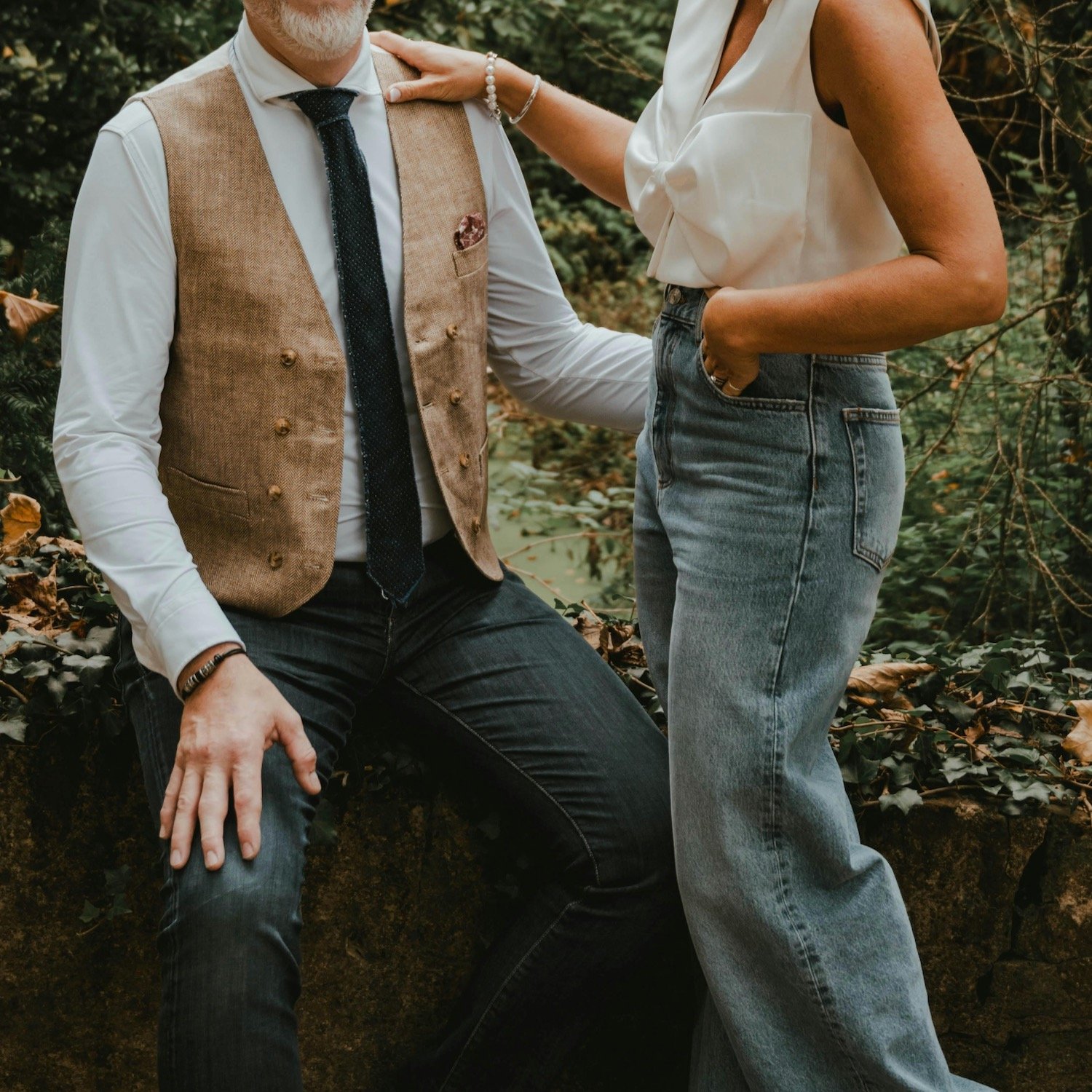I Don’t Think I Love You: When You Don’t Fall Head-Over-Heels For Your Baby
by Katie Pace
“It’s a girl!” my partner exclaimed, as he gently pulled our first baby from my body.
A girl. I knew it was a girl. I mean I didn’t actually know, but I knew it was because sometimes you just know these things. After nine months of anticipation, ten days past my due date, 67 hours of labor and really my whole life of wondering what it would be like if I had a baby, she was finally here. Seven pounds, six ounces and 20 inches of something that was half of me, half of him and 100% all her.
But as she lay on my chest, mouth agape and eyes wide, I looked at her and…well…I just looked at her. I’m sure I murmured something like “Hi baby!” or “Thank you for finally joining us!” but I don’t really remember. It wasn’t significant. It wasn’t the elation of a new mother finally meeting her daughter for the first time. It wasn’t baby talk or happy tears or a smothering of kisses all over her tiny, round, slightly birth-battered face. It was just a baby.
I remember being so bewildered when I first laid eyes on her and as I continued to stare at her throughout the next few days. Who was this person? For some reason, I had envisioned birthing this chip off the old block and then immediately knowing who it was. Like “Yes! There you are. Of course it was you. I knew you all along.” But something must’ve been amiss. I must have miscalculated the mom-to-baby insta-bond because this…THIS! This was a stranger. And I was pretty sure I didn’t love it.
Yes. My own child. That I conceived, carried and brought into the world. I didn’t love her. I felt somewhat protective of her, a bit proud to show her off, but love?! Eh. Maybe I didn’t even know what love was. But how was I honestly going to feed, change, bathe and RAISE her if I didn’t even feel the thing? You know that thing that’s supposed to happen that everyone says, “You can’t understand until you have your own.” Or wait…was this it? Was I overthinking it? Was this the supernatural connection everyone had talked up so big? But I saw no fireworks or heart-eye emojis. I felt no pitter-patter in my chest or butterflies in my stomach or whatever the hell you were supposed to feel. I didn’t want to hold onto her forever. In fact, I wanted to go to sleep and not have her tearing apart my nipples.
Not only did I feel acutely ashamed for not being completely smitten with my own flesh and blood, but I felt duped! Wasn’t this what I was supposed to get at the end of all the morning sickness and heartburn? I thought there was some mutual unconditional love reward once a human sprung from my loins. I went to bed that first night completely relieved that childbirth was over and utterly despondent that this was the reality of the winner’s circle. What a crock. Maybe it was me. Maybe I wasn’t the kind of mother that felt the magic. Turns out I’m not the only muggle mom.
Go down deep into the Googleverse and studies show that about 20% of new parents feel no real emotional attachment to their newborn. One in five of us are just lying there, bodies aching in our adult diapers wondering what the hell just happened, because there was supposed to be a high that came with this ache. As our uteruses (uteri?) opened, our hearts were supposed to explode, too. But it just isn’t as simple as that. Despite being led to believe we will be, there are lots of reasons we aren’t always instantly in love with our infants.
“i saw no fireworks or heart-eye emojis. I felt no pitter-patter in my chest or butterflies in my stomach or whatever the hell you were supposed to feel.”
Delivery difficulties or lack of preparation.
When we have expectations for how birth, or anything frankly, will go, it can be hard to face the aftermath.
We can’t just spontaneously free our pain, traumas and crushing disappointments the second they cut the cord in order to be fully present with our babies.
Processing and healing from sudden C-sections, unexpected NICU stays, extreme exhaustion, premature deliveries or health complications is something that can take months or even years. So when it’s at the forefront our consciousness, as fresh as our babies, there’s not always space for love to form. When we aren’t prepared physically or emotionally for these life changing events — or maybe even for the pregnancy itself — we aren’t quite ready to give our hearts away either.
Mood Disorders, Anxiety, and Grief.
Often we aren’t just having babies. We are birthing humans while simultaneously wrestling mental monsters.
In the same way it can rob of us of our goals and happiness, perinatal or postpartum depression can splinter our ability to fall in love, even with the most lovable of humans. Especially when those ultra-enchanting specimens are sucking the life out of us.
Likewise, fears and anxieties around our responsibility for this being, can be immensely overpowering. I mean we have to keep humans alive when some of us don’t even have surviving plants. It’s a lot of pressure that can create a relationship full of protection, yet void of attachment. And grief, perhaps even the worst kind - the loss of a previous baby or child - can bring up emotions mothers don’t know how to navigate. Since grief is a reflection of what we love, it can be all encompassing. Making it incredibly confusing when you don’t immediately love your baby because you loved someone else so much.
“bonds that last a lifetime don’t always happen overnight.”
Hormones.
Ah, hormones. The doozy of the fertility world. The very things that got you pregnant in the first place are the things that can leave you hanging off the cliff in the end.
The first ones being estrogen and progesterone: the two captains of the pregnancy team. They are the catalyst to pregnancy and support both the fetus and the woman’s body. Progesterone rises significantly in the beginning to feed the baby and inhibit preterm labor. While estrogen levels increase steadily and are at their highest right before labor. But immediately after the delivery of the placenta, progesterone levels return to what they were pre-pregnancy, while estrogen remains sky high — resulting in what’s called estrogen dominance.
And hang onto your hankies, because this can cause random outbursts of uncontrollable sobbing and the baby blues. Which in the immediate post-birth haze, can prevent you from bonding with your baby, too.
And then there’s oxytocin: “the love hormone.” It’s the hormone that formed the connection between you and your partner when you created said baby. It’s what triggers the letdown of milk during breastfeeding and it’s released in its very largest amounts during labor — in order to get that baby OUT. (Praise!) Lastly, and probably most importantly, it’s the hormone that elicits maternal protective instincts and causes you fall in love with your child. Except, of course, when it doesn’t.
A study published in the Journal of Psychological Science found that the higher a mother’s oxytocin levels in the first trimester of pregnancy, the more likely she was to engage in bonding behaviors such as singing, touching, feeding or bathing her baby. You know, those activities we think we will just naturally want to do. Oxytocin is straight up one of the main ingredients in the mama-baby bonding. But not everyone’s oxytocin levels are the same; making it far from foolproof. And when labor is fucking TERRIBLE and you ask for an epidural, the epidural lowers the mother’s production of oxytocin, or stops its normal rise during labor. Doctors often replace the deficit with Pitocin — or synthetic oxytocin in order to make up for it. But sometimes, somewhere, something just isn’t exactly where it should be. And our “love hormone” seems like it’s broken.
“having little space between my baby and myself, would actually create space for love.”
But!
Despite all the reasons you may not have an immediate affinity with your newborn, I’m here to tell you that you can get. it. back. I did. The love isn’t gone forever, it just needs time to grow. After all, bonds that last a lifetime don’t always happen overnight. So start by sleeping in same room. The more time you spend with your baby, the more touch, skin-to-skin contact and overall caring that you do for your baby, the more the relationship builds.
Breastfeeding can also help produce more of the hormones and intimate bonding that you need. Start with the basics. Feeding. Caring. Touching. And a lot of it. Oxytocin actually increases just by staring at your baby. And if the attachment still isn't there yet, then take care of yourself. Get some help and some rest. Or a therapist or medication if you need it. Meet your needs while you meet theirs. Because tending to your heart can also cause it to grow a few sizes.
I often tell people that while it’s COMPLETELY AND TOTALLY DIFFERENT, it’s not super far off from when you get a puppy. When you get the furry little thing you just think it’s cute. (Usually. At least a little bit.) But then the more time you spend with it, bathing it, feeding it, taking it on walks, letting it snuggle up to you on the sofa or in the nook of your knees in bed; the more you start to make it a part of your life; a part of your family. Yes, you may not love that it pees on your curtains but oddly, the more you clean up after it, the more it clings to you. And then eventually, you’re hooked. Except with babies, it’s next level.
“we often get caught up in how something is supposed to be or how we are supposed to feel and then that hinders our authentic experience or feelings.”
When I was pregnant, my partner and I knew we wanted to follow the attachment parenting philosophy. The idea that when you keep your baby with you and on you constantly at the beginning it creates independence, happy babies, and mutual sensitivity. But what I didn’t expect was that having little space between my baby and myself, would actually CREATE space for love. It may have been a forced start, but the primal and innate bond between mother and child eventually showed up. I don’t know when or where but one day, I knew her better than I knew myself and couldn’t remember what was important about life before she arrived.
I think we often get caught up in how something is supposed to be or how we are supposed to feel and that hinders our authentic experience or feelings. Recently after seeing something I wrote about my kid on social media, a friend of mine texted me and said “Sometimes I’m a little worried that I don’t love my kid enough. When I see the way you love yours it inspires me to love mine more.” Now this friend is one of the best dads I know and loves this child of his more than I think he even realizes.
But I think like him, we spend so much time worrying about what the love should be like, that we don’t see what it actually is. So maybe let’s start trying to nurture the feelings of endearment — regardless of their intensity, then console instead of guilt ourselves about what sensations are lacking, and bear witness to what love is actually there. And let me tell you, no matter how it begins, the love grows. And then it goes so deep, there’s no turning back.
Katie Pace is an LA based ex-ad creative who is now a writer by day and everything-elser by night. You can find more of her articles here.








